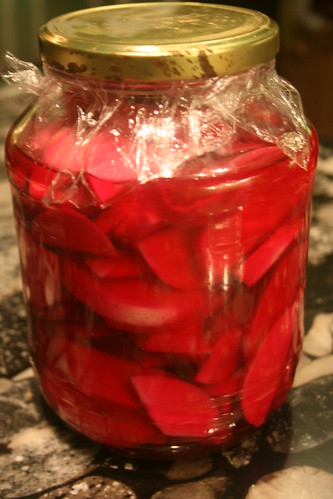TENSE - PRETERITE
VERB ROOT - EETH (ܐܝܼܬܼ)
INF - IYT-LY
[SINGULAR]
I had: āna ith-wā-lee
You (m) had: āyit ith-wā-lookh
You (f) had: āyat ith-wā-lakh
He had: āwo ith-wā-lih
She had: āy(a) ith-wā-lah
[PLURAL]
We had: akh-nee ith-wā-lan
Y’all/Ye had: akhto(n) ith-wā-lokhoon
They had: an-ee ith-wā-laey
Ex: I had one coconut - āna ith-wā-lee kha joez-narghila
________________________________
VERB - TO HAVE
TENSE - PRESENT
VERB ROOT - EETH (ܐܝܼܬܼ)
INF - IYT-LY
[SINGULAR]
I have: āna it-tee
I do not have: āna Lit-tee
You (m) have: āyit it-tookh
You do not have: āyit Lit-tookh
You (f) have: āyat it-takh
He has: āwo it-tih
She has: āy(a) it-tah
We have: akh-nee it-tan
Ye/Y’all have: akhto(n) it-tokhoon
They have: an-ee it-tay
Ex:
1. We have a huge dog in our back yard - ākhny it-tan kalba rāba d' hadi-qit-tan
2. You have two brothers - āyit it-tookh trae akhwatha (yen akhonwatha)
3. He has an appointment with his doctor - āwo it-tih tfaqta im-id daktor dy-yae
4. She has a nice body - āya it-tah khosh gooshma
Note:
To form the negative, simply place the L sound in front of the conjugated verb, as seen above.
Lah = No
Example:
She has: āy(a) it-tah
She does not have: āy(a) + La + it-tah forms a contraction (just as in English with She has and She hasn't) and becomes āy(a) Lit-tah.
________________________________
VERB - TO HAVE
TENSE - FUTURE
VERB ROOT - EETH (ܐܝܼܬܼ)
INF - IYT-LY
[SINGULAR]
I will have: āna bid-hāwe-lee
You (m) will have: āyit b-hāwe-lookh
You (f) will have: āyat bid-hāwe-lākh
He will have: āwo b-hāwe-lih
She will have: āy(a) bid-hāwe-lāh
We will have: akh-nee b-hāwe-lan
Ye/Y'all will have: akhto(n) bid-hāwe-lokhoon
They will have: an-ay b-hāwe-lāy
________________________________________
You (m) have: āyit it-tookh
You do not have: āyit Lit-tookh
You (f) have: āyat it-takh
He has: āwo it-tih
She has: āy(a) it-tah
We have: akh-nee it-tan
Ye/Y’all have: akhto(n) it-tokhoon
They have: an-ee it-tay
Ex:
1. We have a huge dog in our back yard - ākhny it-tan kalba rāba d' hadi-qit-tan
2. You have two brothers - āyit it-tookh trae akhwatha (yen akhonwatha)
3. He has an appointment with his doctor - āwo it-tih tfaqta im-id daktor dy-yae
4. She has a nice body - āya it-tah khosh gooshma
Note:
To form the negative, simply place the L sound in front of the conjugated verb, as seen above.
_________________________
RANDOM VOCABULARY WORD OF THIS LESSON
Pickled Turnips - shorigmih

No comments:
Post a Comment